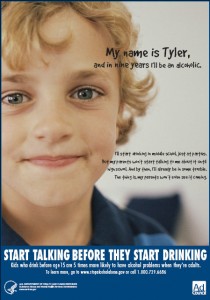12
Mental Monday: To Spank or Not to Spank…Shouldn’t Even Be A Question
When it comes to bringing children into this world, there is an abundance of divisive topics- “natural” births vs. medicated/C-section births, breast-feeding vs. formula-feeding, disposable diapers vs. cloth diapers, pacifiers vs. no-pacifiers, and so forth.
So many of these so-called issues are not really worth my time to argue, simply because I don’t see much harm in opting for one method of doing things over another. My motto is always this; as long as no one is emotionally or physically harmed in the process, whatever works best for your family is the ideal method of doing things. I don’t care whether or not you had a home-birth or had to be induced. I don’t care if you breast-fed or bottle-fed or whether your child wears Huggies or has been trained in Elimination Communication since birth. These types of topics do not concern any of us and we should not judge others for doing something that we ourselves do not include in our parenting repertoire.
However, there is one parenting topic that I believe warrants all the disapproval and judgment that it gets: spanking. (continues…)
02
Start Talking Before They Start Drinking
 Did you know that the month of April has been designated Alcohol Awareness Month? I didn’t either until I was contacted on behalf of the new Underage Drinking website, which was developed by the U.S. Department of Health and Human Services. This new public education website was created in support of the Surgeon General’s call to action to bring more awareness to parents about the negative effects of drinking alcohol at an early age. Alcohol abuse is a critical issue because it remains the biggest substance abuse problem among our youth.
Did you know that the month of April has been designated Alcohol Awareness Month? I didn’t either until I was contacted on behalf of the new Underage Drinking website, which was developed by the U.S. Department of Health and Human Services. This new public education website was created in support of the Surgeon General’s call to action to bring more awareness to parents about the negative effects of drinking alcohol at an early age. Alcohol abuse is a critical issue because it remains the biggest substance abuse problem among our youth.
Some startling facts about underage drinking:
- Children who first use alcohol before the age of 15 are six times more likely to have alcohol problems than those who start drinking after the age of 21.
- 40% of children have tried alcohol before 8th grade.
- 75% of high school seniors have tried alcohol.
- According to the National Institute on Alcohol Abuse and Alcoholism, approximately 5,000 people under the age of 21 die as a result of drinking alcohol.
- 11% of 8th graders, 22% of 10th graders, and 29% of 12th graders have engaged in heavy episodic (binge) drinking.
- Children are starting to drink much earlier than ever before. The average age of first use in 2003 was 14. In 1965, the average age was 17.5.
The new website suggests short and frequent discussions rather than have “the talk” which can be long and intimidating for children. Many children will simply tune parents out, especially if they are being talked *at* and not *to.* When you start a dialogue with your child, make sure to ask them questions and make time for their questions, too. Another important factor is to establish your rules and thoughts on alcohol use early and consistently. (continues…)
29
Mental Monday: (Kind Of) Great Expectations
I wrote a blog post last week about starting a college savings plan for my son. My kid is only two years old so, needless to say, we’re not discussing college campus visits and SAT scores right now. But, like so many other parents who start saving for college practically from the time they get a positive reading on a home pregnancy test, I anticipate that my child will one day go to college. I got a little flak, both on and offline, for stating that I expect my child to one day go to college and that I would be disappointed if he didn’t. I won’t change my position on that statement since, well, it’s true. But I would like to elaborate on my point.
Considering my son is so young, I don’t know what type of student he will be or what career path he will choose. I don’t know if he’ll even enjoy school. Like most students, there were times when I enjoyed school and times that I didn’t. There were some semesters when I made the honor roll or dean’s list and some semesters when I did not. My parents did not pressure me to do better than my potential, but they did encourage me to do my best. Sometimes my best wasn’t my best at all, but I would learn from it and do better next time. I still try to do that. The drive to do my best was instilled in me from my parents. They repeatedly discussed the importance of having an education and how having a college degree will offer many more opportunities, no matter what field of work I chose. I knew from junior high that the goals I had set up for myself would be much more challenging, if not impossible, to accomplish if I did not earn a degree.
To shut the door on furthering your education after high school is to shut the door on academic and cognitive growth. It also tightens or locks up a lot more doors that a college degree would otherwise open. But there is even more to it than simply gaining more knowledge or having that degree listed on your resume. The experience of college cannot be replicated in any other way. Being in a class filled with people from all walks of life and having everyday interactions and discussions with them is something far more valuable than people give credit. To be on your own for the first time and have adult responsibilities is life-changing. No one tells you to study or go to class. It is often the first time for many young people to learn to behave responsibly and be accountable. And, as you’re learning all these important life lessons, your worldview may shift significantly and your beliefs, perceptions, and ideologies will be challenged, strengthened, and often changed for the better. For me, this is the most important aspect of college – to walk away, degree in hand, as a more evolved and wise person.
So, will I be disappointed if my son does not have that experience? Yes. I will be disappointed for him, not at him. (continues…)
25
Planning For College While Your Kid Is In Diapers
 I don’t care what career my child has when he grows up. He can be any kind of lawyer he wants to be.
I don’t care what career my child has when he grows up. He can be any kind of lawyer he wants to be.
I’m kidding. Really. I truly don’t care what career my child chooses when he grows up, as long as it brings him joy and fulfillment…and doesn’t harm anyone in the process. What I do care about is that he gets an education. Going to college will be something that I expect my child to do when he grows up, no matter what career he is interested in pursuing. It does not matter if he is Bill Gates, Jr. or some sort of celebrity child-star (not if I can help it), I will be disappointed if my kid does not graduate from a 4-year university.
In anticipation of my future college graduate, I’m planning now because I know first-hand how difficult it can be when there isn’t a college nest egg waiting for you. My parents struggled to put three kids through college and it certainly didn’t help that, at one point, all three of us were in college at the same time. Knowing that I would be responsible for some of my college and living expenses, I worked from my sophomore year of high school and all through college. I graduated high school nearly a year early, which allowed me to work almost full-time while taking classes at my local junior college. Once I transferred to a 4-year college, I continued to work just as hard. By my senior year, I was working 30 hours a week while trying to maintain my GPA and some semblance of a normal college social life. It was a huge challenge, to say the least.
That’s not the end of my story. (continues…)
15
Mental Monday: What Kind Of Parent Are You?
Authoritative Parent, Permissive Parent, Authoritarian Parent, Uninvolved Parent, Over-Parent/Helicopter Parent, Attachment Parent, etc…
If you’re a parent, chances are good that you’ve heard about some or all of these parenting approaches. Parents may find themselves questioning which one works best or which one identifies how they parent. It can be easy for some parents to try and pigeonhole themselves into one of these categories or even attempt to extricate themselves from a certain style. As most parents know, the way you parent significantly influences the development and pathology of a child. Even a child’s personality is influenced by parenting style. Although parenting style has little effect on the basic disposition of a child’s personality, it can easily impact or transform behavioral characteristics. And, all too often, those changes are not in a positive form.
So maybe we know all the different styles out there and perhaps we even identify with one or two of them. But what really matters most when it comes to how you parent? Forget labels. Forget trying to pigeonhole yourself into one category or another. What matters most are three very simple and basic parenting characteristics. Evidence from longitudinal research studies have shown that these three parenting factors produce the most well-adjusted adults and create the most harmonious parent-child relationship (L’Abate & Baggett, 1997):
- Warmth Factor
Emotional warmth is consistently found in research studies to be the most important parenting style factor. This applies to both parents. Having emotional warmth towards your child includes praise, support, approval, encouragement, expressing terms of endearment, and physical affection. Warm, loving and affectionate parents are much more likely to raise well-adjusted adults who are mentally healthy, are psychologically mature, and have adequate coping skills. However, emotional warmth comes with its own balancing act. It is easy for parents to over-praise and/or not punish inappropriate or negative behavior. While it’s important to validate good behavior or accomplishments, it’s equally important to follow through with rules and (non-abusive) discipline.
- Control Factor
Parents who have a high control frequency raise their children with many rules and will often intervene in their children’s activities. On the flip side, parents with low control frequency are too permissive and, to the extreme, negligent. Parents with a balanced sense of control will intervene when their child needs help, guidance, and support and step back when their interference is not only not warranted but also counterproductive. These parents will also maintain reasonable and age-appropriate rules, boundaries, and disciplinary actions.
- Consistency Factor
Consistency is crucial when it comes to parenting and this goes for all communication exchanged between parents and children. Consistently displaying love and warmth and consistently maintaining control and following through with discipline are all imperative to the child-parent dynamic.
Some of this information may seem like common sense to you, but it’s not always easy to apply these three essential factors into everyday parenting practices. To be able to balance a healthy dose of warmth, control, and consistency doesn’t always come naturally and we will all fail at this balancing act at some point.
Many variables influence our own parenting style, such as the way we were parented and our sociocultural and socioeconomic influences. It’s not surprising that those of us with warm and affectionate parents are more likely to become warm and affectionate parents. And, of course, the opposite is true as well. That doesn’t mean that those who did not have warm and affectionate parents are not capable of growing up to become warm and affectionate parents. It just means that applying these parenting factors may prove to be more challenging.
None of us are perfect parents and we will come up short at times. Just remember that although it’s important to recognize and own up to our parenting errors, it’s equally important to recognize that it’s not the minor parenting errors that have the greatest impact on our children. It’s the overall dynamic between parent and child, one that is filled with love, kindness, respect, support, rules, boundaries, and affection. There is little doubt that a childhood and adolescence filled with those essential components will likely transition into a well-adjusted adulthood.
Questions? Comments? Please share.


